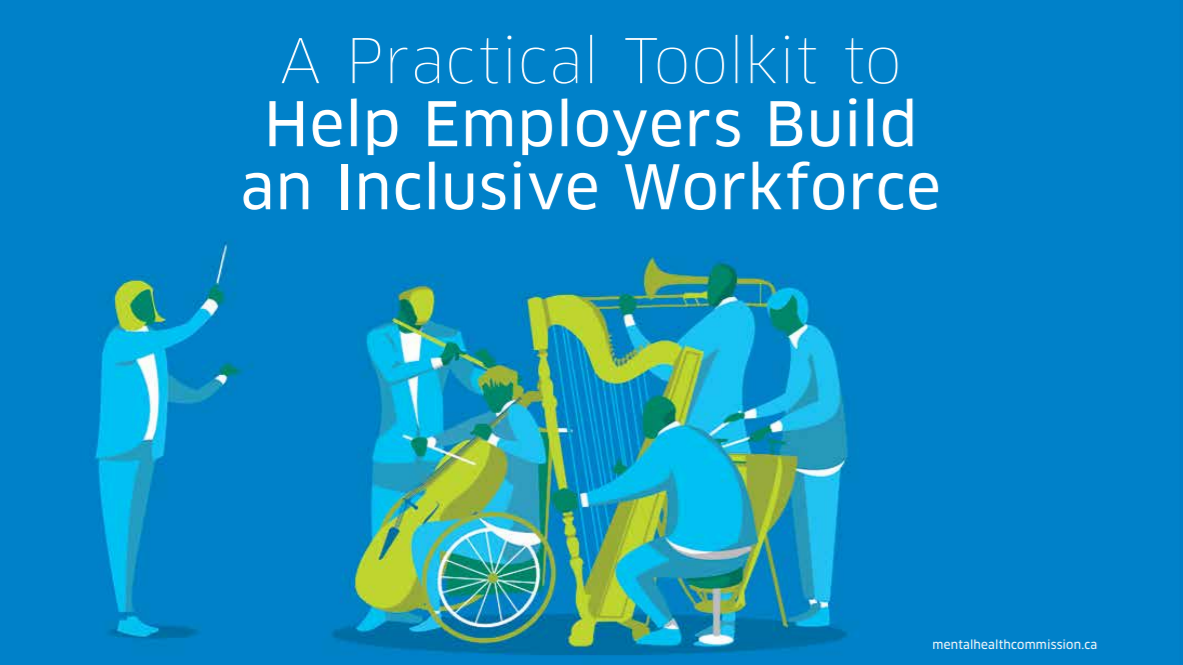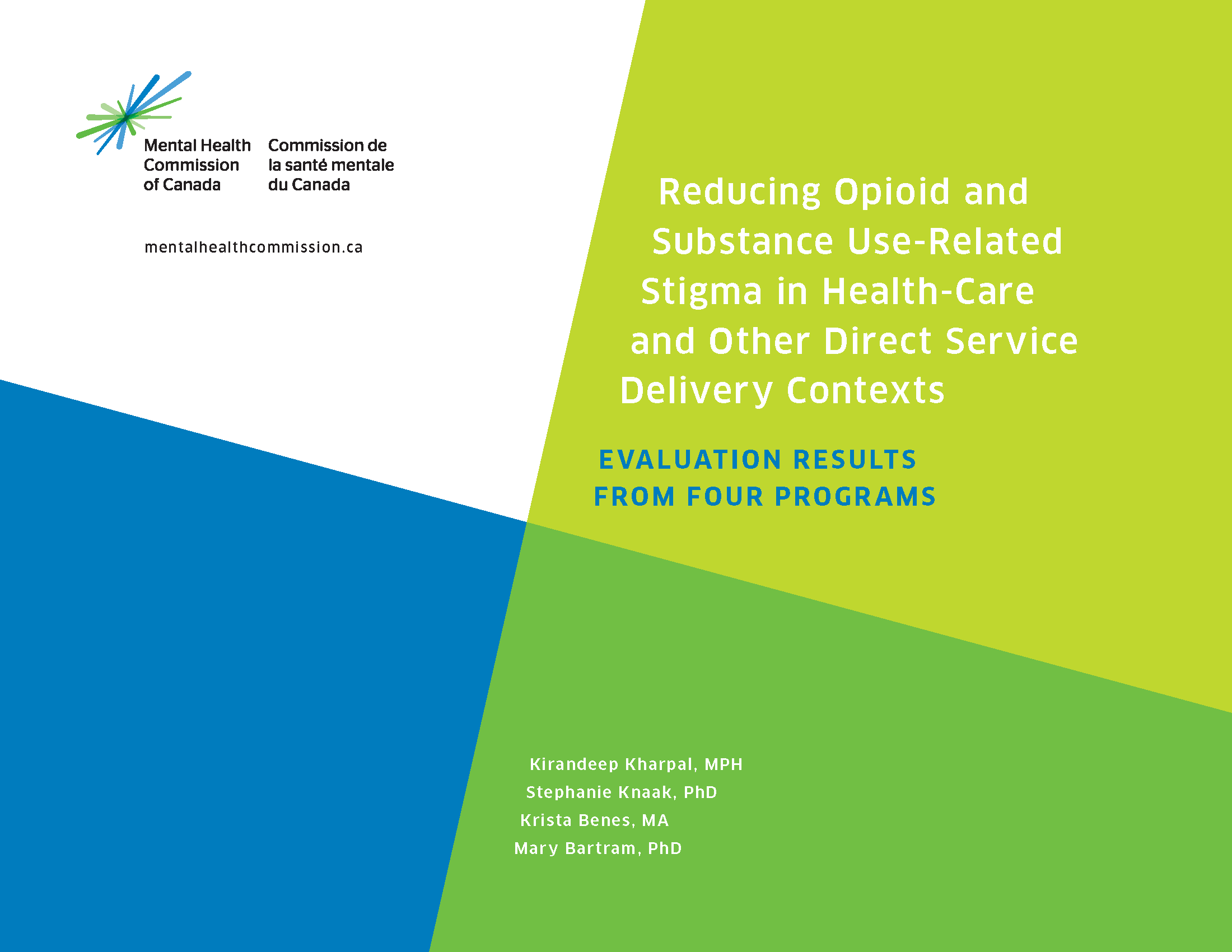If you are in distress, you can call or text 988 at any time. If it is an emergency, call 9-1-1 or go to your local emergency department.
- Professional Resources, Toolkits
A Practical Toolkit to Help Employers Build an Inclusive Workforce
A Practical Toolkit to Help Employers Build an Inclusive Workforce is meant to help human resources (HR) professionals and those with HR, wellness and diversity responsibilities increase accessibility and inclusiveness and address the needs of workers living with mental illness. Because recruitment, retention, and support policies and practices affect everyone, the toolkit draws on the insights of workers with experience of mental illness as well as their co-workers and managers. The toolkit is divided into five sections that outline the steps and strategies organizations can implement to better recruit, hire, and retain workers living with mental illness. The toolkit includes:
- Professional Resources, Toolkits
A Practical Toolkit to Help Employers Build an Inclusive Workforce
A Practical Toolkit to Help Employers Build an Inclusive Workforce
- Stigma, Workplace Mental Health
A Practical Toolkit to Help Employers Build an Inclusive Workforce is meant to help human resources (HR) professionals and those with HR, wellness and diversity responsibilities increase accessibility and inclusiveness and address the needs of workers living with mental illness. Because recruitment, retention, and support policies and practices affect everyone, the toolkit draws on the insights of workers with experience of mental illness as well as their co-workers and managers. The toolkit is divided into five sections that outline the steps and strategies organizations can implement to better recruit, hire, and retain workers living with mental illness. The toolkit includes:
SHARE THIS PAGE
RELATED

Review our Assessment Framework for Mental Health Apps — a national framework containing key standards for safe, quality, and effective mental health apps in Canada.

To help expand the use of e-mental health services, we developed four online learning modules based on our Toolkit for E-Mental Health Implementation, in collaboration with the Centre for Addiction and Mental Health (CAMH).

Stepped Care 2.0© (SC2.0) is a transformative model for organizing and delivering evidence-informed mental health and substance use services.

